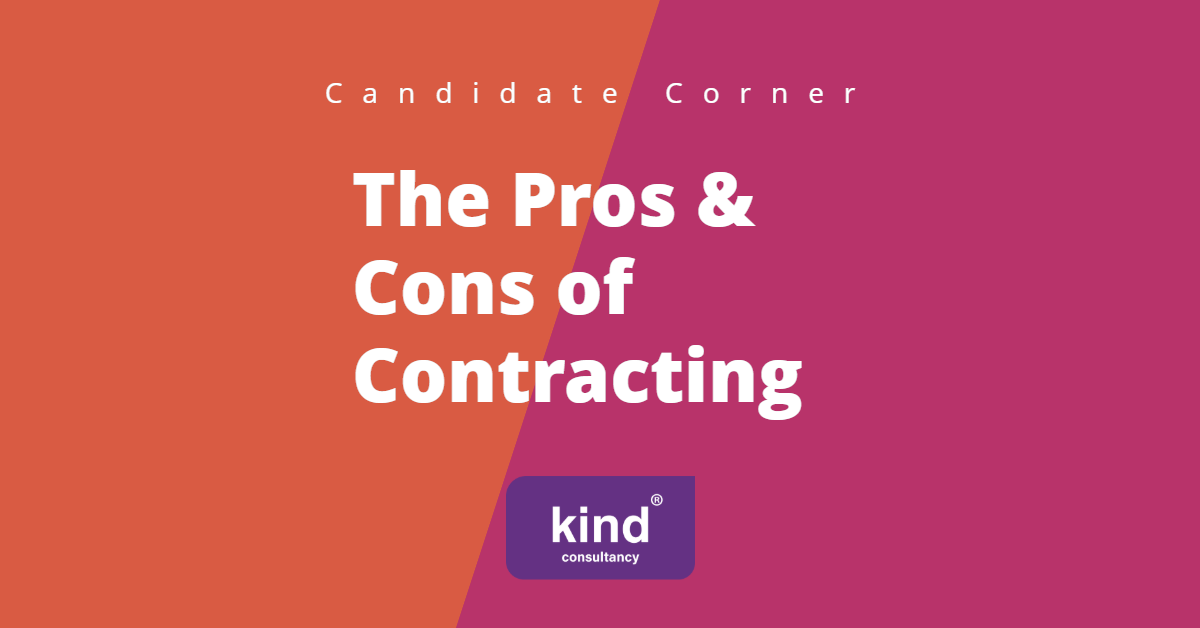Career Corner: The Pros and Cons of Contracting
You’re a Governance, Risk & Compliance professional. You’ve developed a portfolio of skills and gained an excellent bank of knowledge about your chosen niche and you’ve been working hard the area of the industry you’re really interested in. You’ve been in your current role for some time now, and you know you’re great at it but you’re starting to wonder where to take your career next. A question we get asked a lot by people in your position is:
Should I be contracting?
There are a lot of factors to consider before making this decision. Many people are attracted to the idea of contracting because they think they’ll make more money. There are cases where going from a permanent role to a contract at a similar level will see an uplift in how much you’re taking home, but the idea that contracting is always going to make you more money is a sweeping generalisation. Especially if you’d be leaving a permanent position, you should carefully consider the financial reality of contract opportunities on a case-by-case basis, and weigh that carefully against a number of other factors. Just as changing jobs is almost never purely about salary (read our blog on deciding if it’s time to look for a new opportunity), it would be unwise to make the decision to begin contracting based on just the numbers. Especially with the current changes around IR35 and how many employers are handling that, it’s not as straightforward as you may have been led to believe.
This is why the non-financial aspects are so important here, for example; contracting allows you to take on a greater variety of challenges, getting to grips with the specifics of a different situation and context with each new role you take on, even within your specialism. If you already enjoy varied work in your permanent position, take that into account, but if your role feels constraining and even monotonous, moving to contract work could be the solution.
This gets to the heart of the issue – you need to find out what kind of work suits you best, there is no one-size-fits-all solution on this. Where some people are most professionally satisfied hopping around the country, diving into a new team every six months, others are going to much prefer a secure long-term position where they can grow and collaborate with the same trusted colleagues.
The first question you need to ask yourself is what do I like about my current role and what do I dislike about it? Would temporary and interim work provide more or less of what you personally find fulfilling? Maybe try to discuss this with friends or contacts who have contracted in your field. Cover all of the angles before making a commitment to a significant change to your career and lifestyle. It’s not right for everybody, but if it is right for you it can be immensely rewarding.




